Tories in turmoil: Time to reset Brexit?
- Published
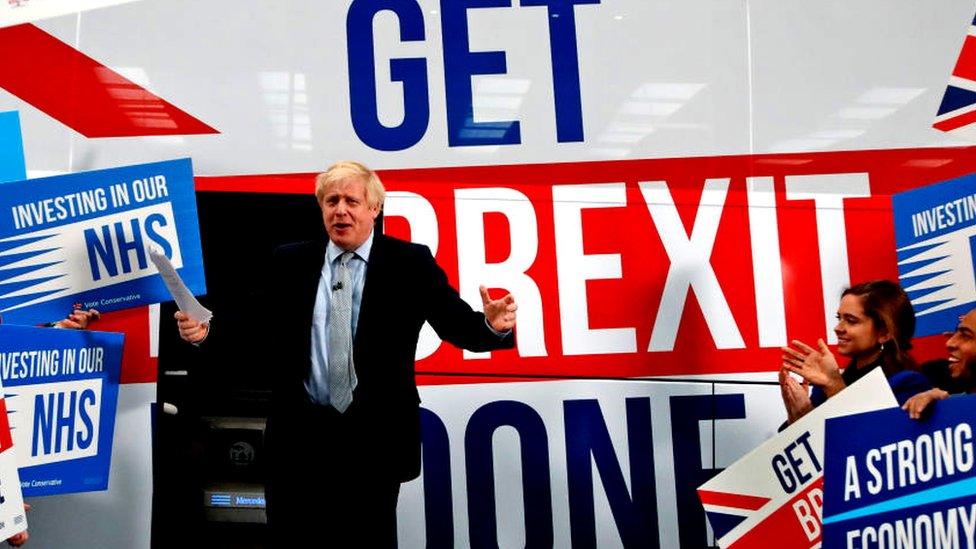
Brexit has resulted in fewer goods moving between the UK and the European Union
There are real world consequences from the leadership drama at Westminster - notably for the economy, with some citing the cost of "political drift".
While Boris Johnson remains prime minister, the party will probably not resolve the tension between big spending expectations and low tax ambitions.
When he eventually ceases to be Prime Minister, that opens the door to a different type of relationship with the European Union. The internal debate on whether and how to soften Brexit's harder edges is beginning to open up.
The Westminster 'bubble' has rarely been so interesting for the rest of us to view from the outside. As a drama full of intrigue, it must be surely be good for the popcorn sector.
Understandably, turmoil within the governing party and about its leadership has taken up many broadcast hours and column inches discussing the rules, the arithmetic, the possibly outcomes, Boris Johnson's personality, and the runners and riders to replace him.
All that focuses on personalities, as politics tends to do. But there are real world consequences for this outside the bubble, and notably so for the economy.
You can opt for a really negative view - for instance, the foreign exchange analyst at Bank of America Merryl Lynch who published the view last week that political drift is undermining sterling as a credible reserve currency, and is more comparable with the Mexican peso than it is to the US dollar, euro or Japanese yen.
That might help explain why it has sunk to an exchange rate below $1.25. That, in turn, pushes up the British costs of dollar-traded oil, meaning petrol and diesel are heading towards £2 a litre.
The Downing Street political drift that was cited on Wall Street is not likely to be calmed by the scale of revolt from Tory MPs. So I'm suggesting two broad themes to watch as an outcome.
Big state spender
One is for the time that Boris Johnson remains prime minister. He is in a weakened position and at the mercy of further revolts over policy.
If he's very smart, he could pick them off, because they may come at him from different wings of the party without finding a common ground.
One group of MPs want to see taxes lowered and the size of the state shrunk. Another take the conventional conservative view of finance that borrowing should be cut back and books balanced.
Still another like the rhetoric of "levelling up", which means the intervention of a big state which pushes infrastructure spending, public service improvement and greater opportunity into the "left-behind" bits of Britain.
Put simply, these are not compatible positions to take on public spending. Boris Johnson is probably closest to the latter group, splashing cash as a populist crowd-pleaser.
Rishi Sunak, his Chancellor, wants to be seen as part of the tax-cutting group, even though Covid, inflation and his neighbour in Number 10 have required him to be a big state spender.
Others who fancy a crack at the leadership will try to make these strands of Toryism compatible, with an eye to the party electorate they would have to please.
The consequences for those who translate "Treasury spending envelopes" into actual public services, including the Scottish government and local councils, will join the rest of us who use public services in feeling the consequences of whichever way that internal Tory debate turns out.
In place of Fromage
Broad theme two is - if the MPs' revolt against Boris Johnson is to bring about his downfall - it's time to think about what comes next. And while public spending and the size of the state will be a big part of that, his replacement opens the door to new thinking about some big public policy questions.
A conspicuous one is Brexit. It's not true to say that it's 'done'. The process it unleashed in economic terms was always going to take years and probably decades to resolve itself.
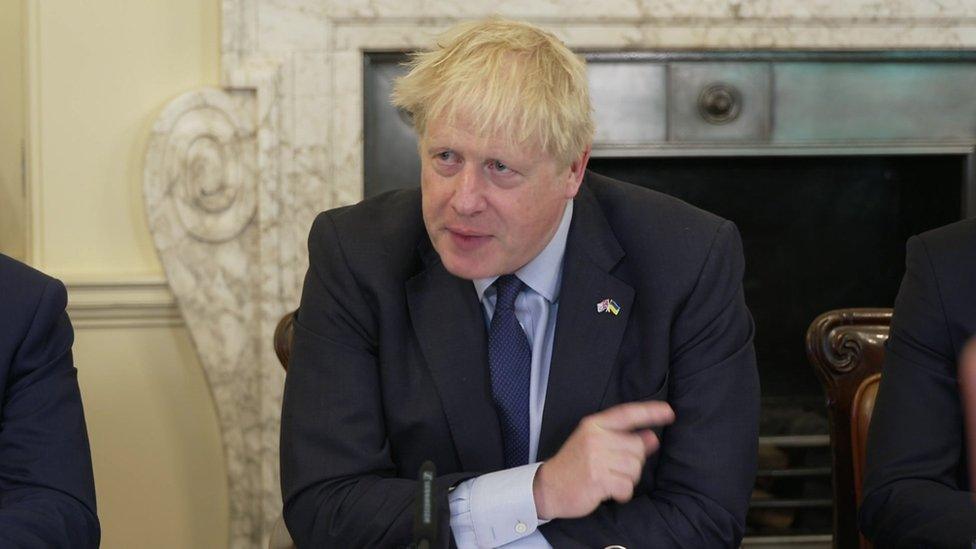
Boris Johnson may want to spend his way out of trouble
The impact of leaving the single market and customs union nearly 18 months ago was masked by the massive economic impact of Covid. Trade flows were hugely disrupted for many countries. It has been hard to identify the extent of the Brexit impact.
But it's becoming less hard. Some goods trade has settled into new patterns, at higher costs. Some has been displaced and new supply chains formed that mean fewer goods move between the UK and the European Union.
For instance, one Scottish high-end cheese producer recently said Brexit had helped sales, because its products are replacing the European cheeses that are no longer despatched to Britain. So that's good for local firms, bad for consumer choice. Some of that supply chain shake-up will take a lot longer.
But already, with the economy bouncing out of Covid restrictions, we're seeing the consequences of losing access to European recruits into private business and public services. The capacity of many firms has been scaled back. Just look at the number of shops, restaurants, cafes and hotels that no longer offer seven-day operations or flexibility of service because they can't get the staff they require to do so.
Airlines and airports are unable to get the staff they need to meet fast-rising demand, and their pleas for access to the European labour pool are getting nowhere. As the British summer holiday season gets under way, travellers find themselves in the slow lane of border controls, facing new rules and complications where previously travel had been all but seamless.
Companies that are seeking business in the European Union are back to travelling to do so, but finding that attending trade fairs, for instance, requires a lot of paperwork and cost if they are to take equipment and materials with them.
Brexit beyond Boris
In Northern Ireland, there are benefits of remaining effectively in the single market, but at the price of a trade boundary with the British mainland. That's a real cost for those supplying Northern Ireland from Britain, with Marks and Spencer recently estimating it has cost the retailer £30m.
That has not been resolved, but at least one Tory MP criticising Boris Johnson's leadership, Jesse Norman, has condemned his solution to resolving the difficulties with the Northern Ireland Protocol as "economically very damaging, politically foolhardy, and almost certainly illegal", as well as "putting the Union itself gravely at risk".
In other words, the current plan is seen as no solution for either the Protocol, for wider relations with the European Union or for divisions within the Parliamentary Conservative Party.
So the project you might call Britain Beyond Boris both offers and requires some reassessment of how to make Brexit work better.
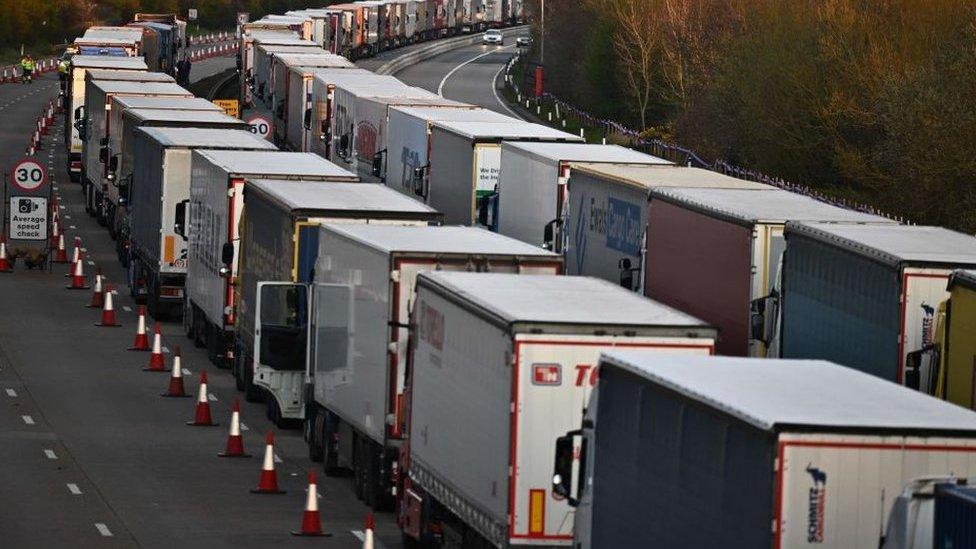
Is it time to rethink Brexit?
The Tories' opponents, including those who argue for Scottish independence, are some way from resolving the political difficulties that Brexit forces on them. (Getting back into the EU might happen, but with Brussels and Westminster creating a hard EU border north of Berwick.) For the next two years, however, it is the Conservatives at Westminster who will control the relationship and set the terms of that debate.
It has just begun to break into the open on Conservative backbenches. In the past week, big beast Tobias Ellwood suggested that the party ought to be responding to the economic problems for trade, farmers, fishers and Northern Ireland. He wrote that the UK should soften its hard-edged stance on the single market and customs union, to "better maximise our Brexit fortunes".
One response to Ellwood's call, from fellow backbench big beast Tom Tugendhat - a likely contender for leadership when the time comes - was to tell him he was plain "wrong". Going back into the single market lets the EU make the rules and shuts down other trade deal opportunities, argued Mr T.
Neither is necessarily true, as Norway can show. Meanwhile, the anonymous response was in briefings to MPs from the PM's team that removing him from Downing Street would threaten the party's achievements on Brexit. That conspicuously failed to convince 148 MPs to back him, suggesting that maybe they aren't all that comfortable or settled about those achievements.
A new prime minister would, and eventually will, have the opportunity to reset relations with Brussels and the 27 EU capitals. It's impossible to imagine it remaining unchanged, whoever is in charge.
That person will have less box office recognition, and will surely provide less entertainment on her or his world travels. But it's also possible to cause less offence, and even to dare to learn from the EU's other neighbours about how Brexit could do less damage to the economy.
Related topics
- Published7 June 2022
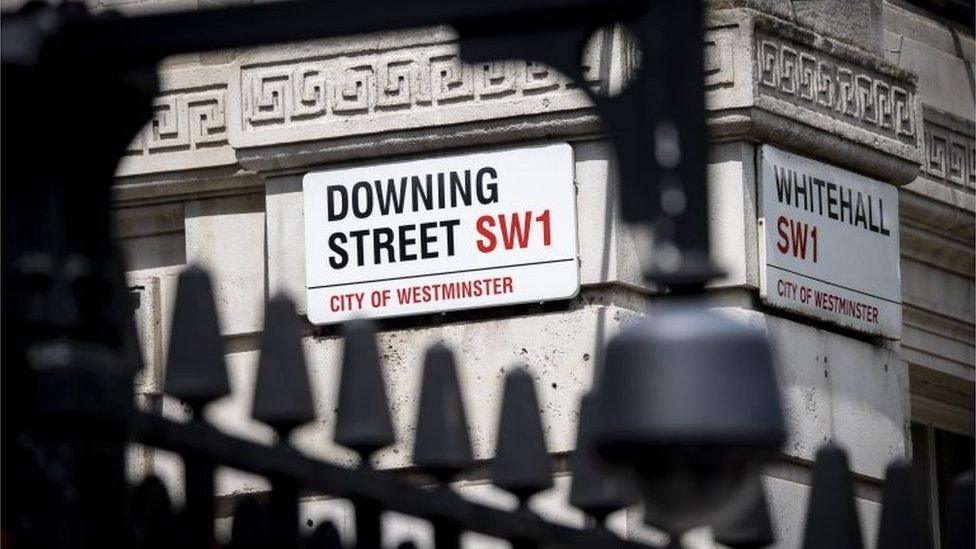
- Published6 June 2022
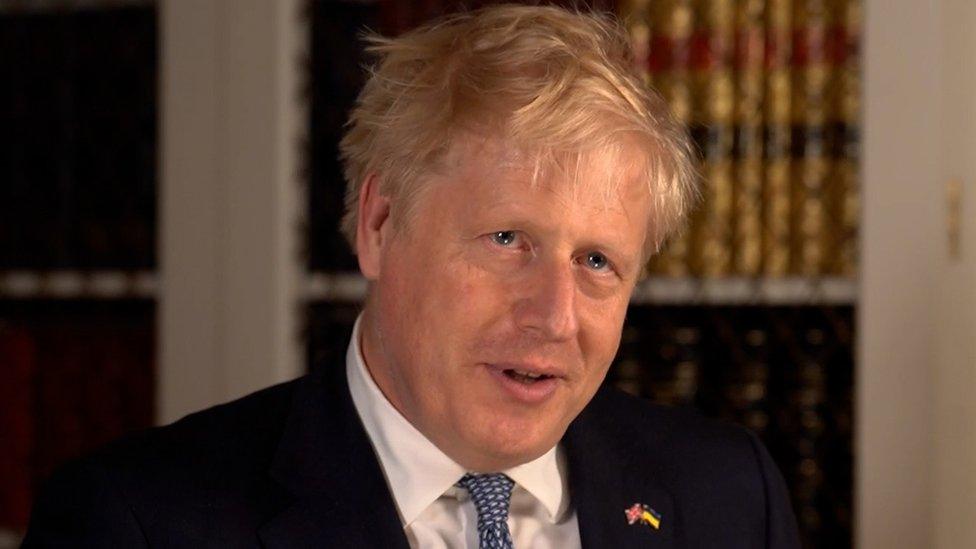
- Published26 April 2022
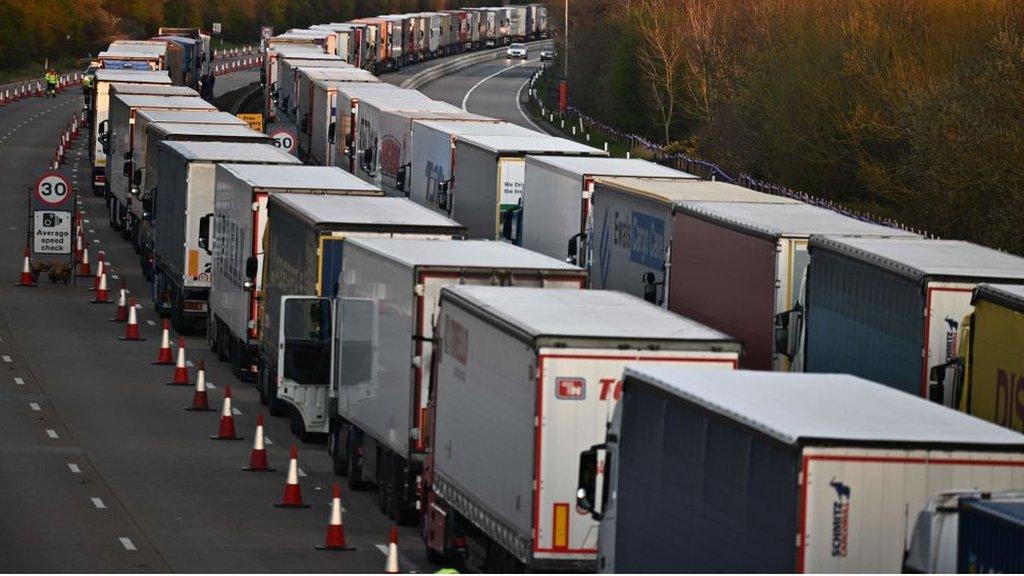
- Published6 June 2022
